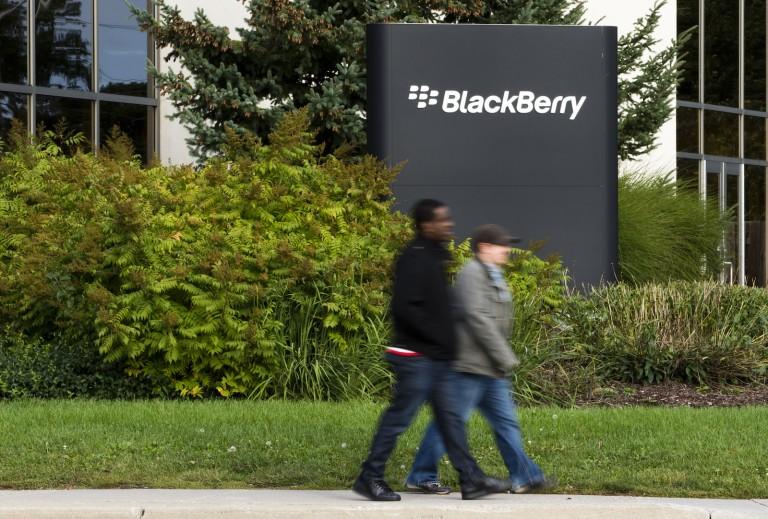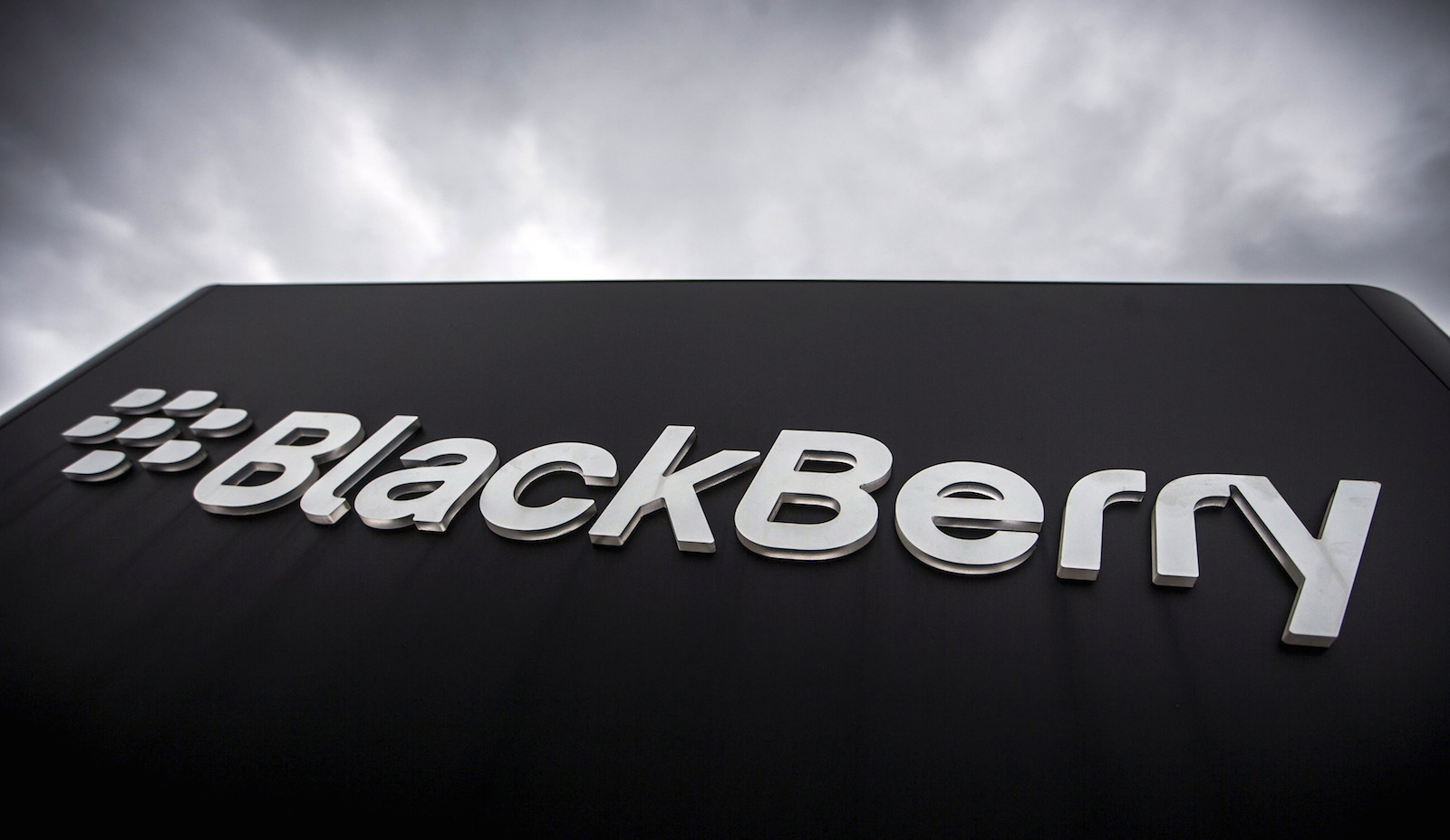In a bid to save itself, BlackBerry to stop making BlackBerrys
The end of physical-phone manufacturing seems like doomsday for the Waterloo, Ont. company—but it may just pay off

People walk on the sidewalk at the Blackberry campus in Waterloo, September 23, 2013. REUTERS/Mark Blinch (CANADA – Tags: BUSINESS EMPLOYMENT) – RTX13WW1
Share

BlackBerry’s latest gambit to save its struggling business is to stop making BlackBerrys altogether—a move that sounds like a death rattle, but may well prove to be the one-time mobile giant’s last chance to return to profitability.
Waterloo, Ont.-based BlackBerry said Wednesday it would no longer design or manufacture physical devices as part of an ongoing strategy to refocus the company on higher margin software and services. “The company plans to end all internal hardware development and will outsource that function to partners,” CEO John Chen said in a statement that accompanied the firm’s latest quarterly earnings, which showed a loss during the three-month period of US$372 million.
The decision marks the end of an era. Under the leadership of former co-CEOs Mike Lazaridis and Jim Balsillie, the company formerly known as Research In Motion kicked off the smartphone craze in the early-to-mid 2000s with popular devices like the Pearl, Curve and Bold. The term “Crackberry,” a reference to the addictive nature of BlackBerry’s push email, entered the global lexicon. But, as everyone now knows, BlackBerry’s meteoric rise—it was once the most valuable company in Canada—began to sputter shortly after Apple entered the market in 2007 with its now-iconic iPhone. In just a few short years, BlackBerry went from being the largest seller of smartphones in the world to controlling less than one per cent of the market.
Yet, while BlackBerry diehards will no doubt consider Sept. 28, 2016, a dark day, it shouldn’t have taken them by surprise. When Chen took over three years ago, he promised to refocus BlackBerry on more profitable software and business services, building on BlackBerry’s reputation for security. A few months later BlackBerry signed a strategic agreement with Taiwanese device-maker Foxconn to build some of its phones. Chen had reportedly given BlackBerry until September to make the remainder of its hardware division profitable. When that didn’t happen, he pulled the plug. “If part of your business is not profitable, and you don’t see a way to make it profitable, I think it makes sense to get out of it,” says Glenn Rowe, an associate professor at Western University’s Richard Ivey School of Business.
Shareholders seem to agree. BlackBerry’s beleaguered stock was trading up five per cent yesterday at US$8.30 on the Nasdaq stock exchange. That’s the highest it’s been in six months.
What might BlackBerry’s phone-less future look like? The company on Wednesday announced a licensing deal with a telecom joint venture in Indonesia that, for the first time, will see another company design and build phones with BlackBerry’s name stamped on them. The devices, destined for the Indonesian market, will also run BlackBerry’s more secure version of Google’s Android operating system and applications. Explained Chen in a statement: “BlackBerry is no longer just about the smartphone, but the smart in the phone.”
It’s a far cry from being known as “Crackberry.” But, as slogans go, it’s surely better than nothing.